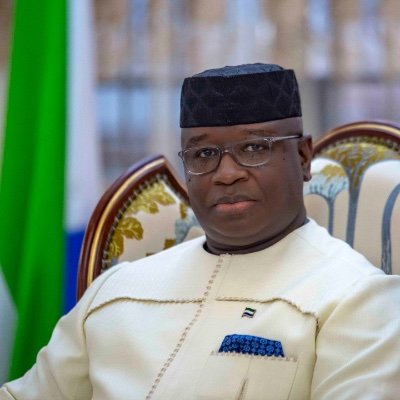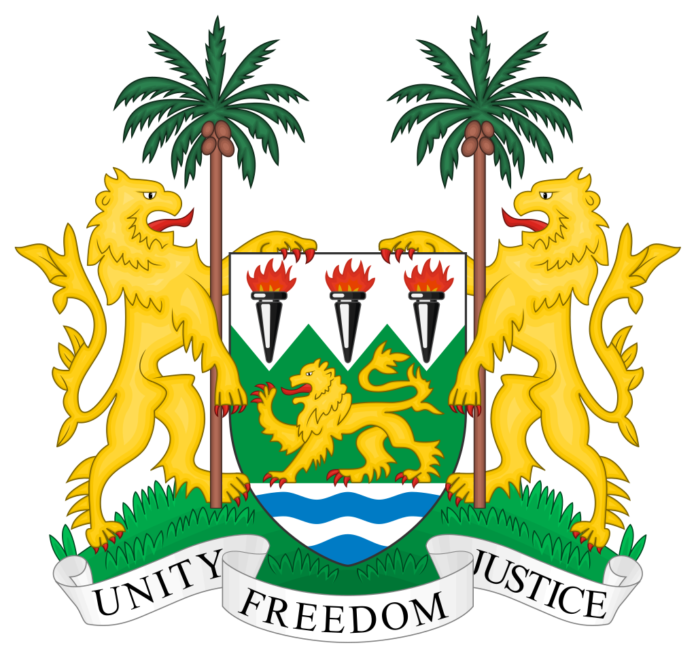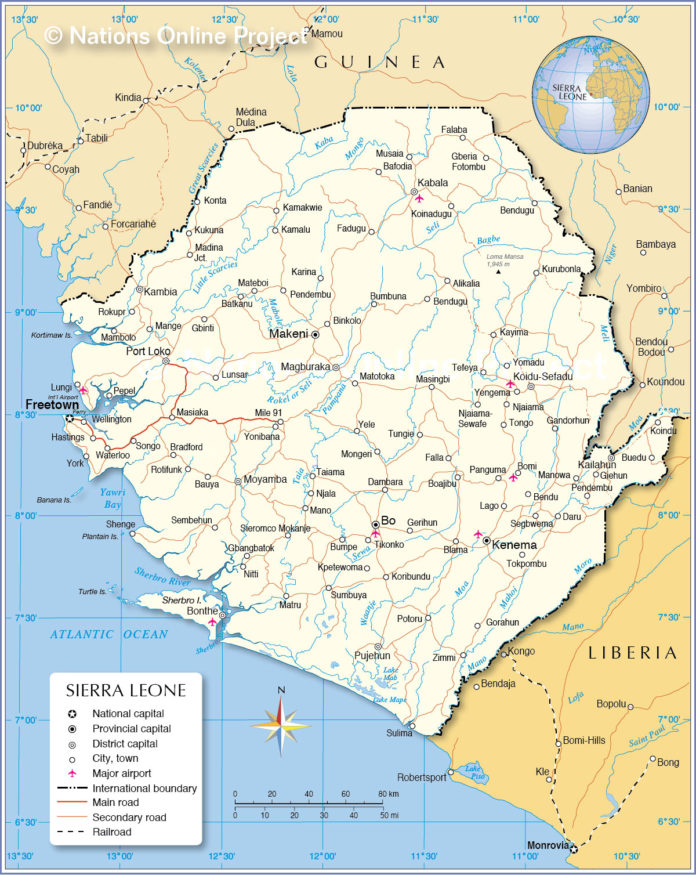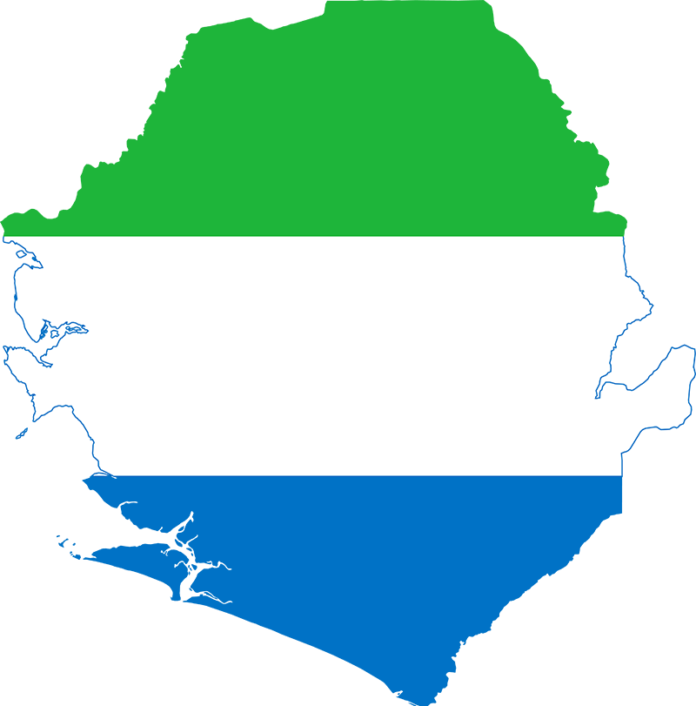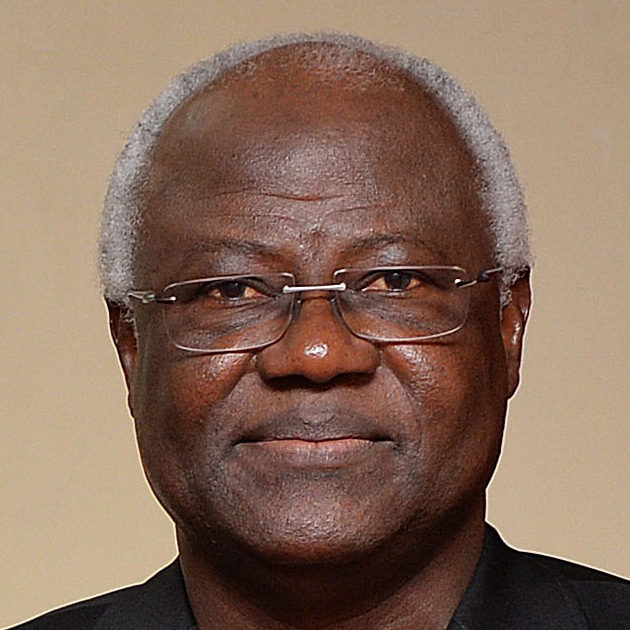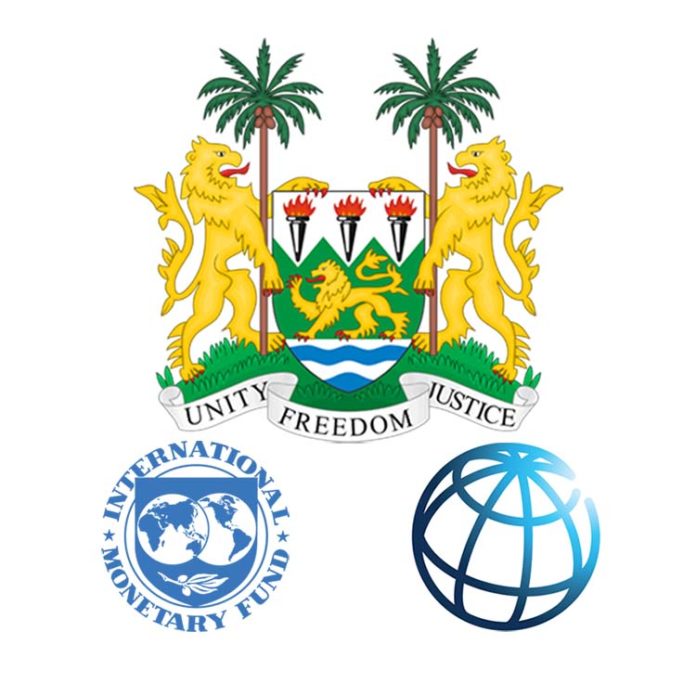by Mahmud Tim Kargbo
Whether our justice system has an ethical obligation to address the justice gap in delivering the much needed social services for most of our nationals may strike some as a question far down in the pecking order of legal education. “Keep it real,” would go the argument.
At a time when the country’s economy faces massive challenges with allegations of misappropriation of taxpayers monies by those in social positions of trust, Sierra Leone nationals need to worry more about job creation, health, education, electricity, pure water, hunger, increase in death and the very degrading standard of living for the majority of the nationals plus the justice gap. But a focus on addressing social service delivery and the justice gap are not mutually exclusive.
It doesn’t make sense to me that a massive population of individuals who desperately need their government to genuinely address their basic necessities of life and a large number of people in our social positions of trust who are supposed to be servants to the people in addressing their social challenges; with all the vast mineral deposits we possess, we can’t work together as patriotic nationals with the laws of the land being wisely implemented with no fear or favour and recognise as the symbol of concrete development to sincerely shape the country in all economic activities for the good of all without cheating the ordinary people. But how can this materialise when most of our policymakers decided not to champion the cause of justice for the benefit of the ordinary people but for the selected few by deliberately ignoring fiscal policies?
This is a clear indication that in the past three years, under the current SLPP regime, the people of Sierra Leone aren’t well served by their politicians. And it’s clear that the majority of Sierra Leone politicians don’t care about the ordinary people. This government (Parliament, Executive and Judiciary) presented Sierra Leone as a happy family with healthy economic growth, but it backfired that the government heavily invest in propaganda and manipulation whilst busy using taxpayers monies to satisfy their personal interests with triple or more prices for essential commodities thereby adding more pressure in the lives of the suffering majority. This is coupled with huge international debt, which appears to take place due to a lack of fiscal discipline.
The people of Sierra Leone are manipulated throughout their lives. Our people are manipulated by our politicians from the day they are born till death. And these are not just accurate characters of leaders that want to move their country forward in a number of positive ways. There’s tremendous hatred by the majority of our politicians against ordinary people. The fact is everything the majority of our politicians did in the past three years is a disaster with hidden agenda to exploit the ordinary people. The money in Sierra Leone is being squandered with the ideas of these two political parties(APC and SLPP). In the past three years, the SLPP has been senselessly repeating or even doing more than the very odd things they condemned and campaigned against the APC government when they were in opposition. Most of them failed to understand that this was what paved the way of their party to the current seat of power. I recognise the fact that there are very distinguished politicians within the APC and SLPP, but we need to help them get off the chain of the terribly bad politicians who are bent on destroying this country.
In the past three years, the majority of Sierra Leone politicians proved to be very dishonest and untrustworthy. That’s why leadership trust in Sierra Leone is at an “all-time low. Politicians in Sierra Leone are two-faced liars. They cheat, they are not fair and they disadvantaged the ordinary people from the day they’re born till death. People like this do not deserve to be in social positions of trust! The problem is the next guy we put in there is no better.” We read these kinds of comments regularly about the state of poor leadership in Sierra Leone. But before we go too far in berating, perhaps, we should examine ourselves. We should look at what is happening all around us. Is leadership like the canary in the coal mine? Maybe the old saying is true – we get the kind of rulers we deserve. If we are a nation of cheaters, sycophants, targeting voices of reasoning, and bootlickers, shouldn’t we have untrustworthy people at the helm of our country’s affairs?
So what is happening? Cheating. Cutting Corners. Getting something that is not deserved. The majority of Sierra Leoneans are doing it and the problem is, it appears to be getting worse.
Feelings are bodily events – they just happen, but we can freely choose our attitudes. We are the only animals with free will that enables us to choose to ignore our feelings or go against them. Moreover, we have the intellect to help us make rational judgments about the right attitudes and the right behaviour of those we want to lead us. The reality in the APC and SLPP today is mostly one of the strained relationships, and people often put it down to internal political conflicts or egos. Unfortunately, politics has been given a bad name all over the country by politicians operating within these two political parties. Today, in Sierra Leone, every organisation I know pretends that they aren’t political, trying to prove it by replacing the word with euphemisms like networking, partnering, lobbying, and influencing. But as Aristotle pointed out long ago that human beings are political animals – if we weren’t political, we wouldn’t be human.
So what is politics? The dictionary tells us it’s the science and art of government, but in the context of Sierra Leone, I would define it as faction and one-upmanship, manipulation and exploitation, lying, cheating, and using others as means to your own ends, or simply the exercise of power to oppress the ordinary people. But none of those things is politics – they are simply what they say they are – instances of Sierra Leone human beings hurting and using other Sierra Leone nationals. Politics is something else altogether, unique to humans. Politics is possible in human society because we can transcend our animal instincts and build communities on the principle of justice, which by definition, is a moral concept. Without morality, there can be no politics but just barbarism. Politics is nothing more than how we order our lives together in justice. And justice is either for everybody or nobody.
Teddy Roosevelt words: “This country won’t be a good place for any of us unless it’s a good place for all of us” apply to all businesses, families, communities, and countries. So if politics is essentially about how we order our lives together, then it’s about our relationships, one-on-one, in groups, and community.
Therefore it’s unpatriotic and an act of clean, convenient hypocrisy for anyone in social positions of trust in Sierra Leone to deliberately ignore the laws of the land and ask the ordinary people in mosques and churches to pray for our country. God seriously frown at hypocrisy. The majority of our politicians in Sierra Leone keep on embezzling state resources and undermining the laws at the expense of the ordinary people and sleep away with it. Unfortunately, these same politicians hypocritically turn to the ordinary people and ask them to pray for the country and its leaders whilst they undermine the excellent work of Audit Service Sierra Leone. If these politicians want to tackle the problems of the economy why can’t they chase the unexplained wealth they keep on amassing? I believe the easiest way to discover the guidelines for good relationships to forge ahead with our country in a number of tangible ways is to ask, “What qualities do you admire in other people?” because then we quickly learn what we expect from one another.
The most common responses I have received in workshops over the years have been respect, honesty, confidence, wisdom, courage, self-control, fairness, creativity, integrity, and aspiration. These are the qualities that help people build positive relationships, and therefore they are the qualities each of us need to try and cultivate in our own lives for the sake of our country. The value of these qualities is easily confirmed if we contrast them with their opposites: contempt, dishonesty, cynicism, foolishness, cowardice, self-indulgence, unfairness, narrow-mindedness, inconsistency, and complacency. These are quite obviously the qualities that undermine relationships. Significantly, all the work I have done with leaders and teams in most categories, the public service, and the professions has revealed again and again that there are just four main factors that make the building of effective teams impossible. Those factors are cynicism, hypocrisy, complacency, and contempt. As long as people cling to those mindsets, there is little chance of any country functioning as a team to realise its target.
Conversely, the starting point for building an effective team is to inspire and nurture the opposites of those four factors – confidence, aspiration, and respect – in the people required to work as a unit. Notice that all of the qualities identified are attitudes.
But what can we do about attitudes, for heaven’s sake? Though we use the terms frequently every day, most people often confuse attitudes with emotions – they are, in fact, very different things, affecting one another, to be sure, but distinct mental states nonetheless. An emotion is, in the words of Mortimer Adler: “…a passion that the body suffers and we consciously experience when a complex set of bodily reactions occurs: changes in respiration and pulse, changes in epidermal electricity, increases of blood sugar and adrenalin in the blood due to reaction on the part of the glands of internal secretion, papillary dilation or contraction. In short, an emotion is a widespread, violent bodily commotion that is consciously experienced and accompanied by strong impulses to act in a certain way.” Examples of emotions would be fear, anxiety, anger, sadness, enjoyment, exhilaration, disgust, and shame.
An attitude, by contrast, is a self-chosen mindset about how we stand in relation to other people, to the world around us, and to ourselves. It is an act of will that shapes our behaviour towards others and ourselves. Feelings are bodily events – they just happen, but we can freely choose our attitudes. We are the only animals with free will that enables us to ignore our feelings or go against them. Moreover, we have the intellect to help us make rational judgments about the right attitudes and the right behaviour.
What then are good or positive attitudes, and what is bad and negative attitudes?
Quite simply, good attitudes promote well-being, while bad attitudes cause harm – to ourselves, others, and the world around us. So we can safely say the majority of our politicians possess a bad attitude towards developing the country, judging from the resources we own and the level of abject poverty they keep on forcing the majority of our nationals to live with. This can be easily tested by listing the attitudes of other leaders that help build their countries, and we quickly discover that they simply follow on from the list of qualities people admire in others. Caring, hard-working, adventurous, curious, cooperative, generous, and persevering are just some of the attitudes that fit neatly into the earlier list. And they are all qualities encouraged by the experts on emotional intelligence.
By contrast, bad attitudes are exposed as extensions of the list of qualities that break down a country. Selfish, lazy, complacent, credulous, uncooperative, greedy, and submissive all fit logically into the list of qualities people dislike in others, qualities that make living together and development difficult. The empowering reality is that we really are in control of our own destiny. Epictetus and many other great philosophers have told us that our happiness depends on the choices we make and that our well-being ultimately depends on our well-doing. That means we are in a position to change our lives for the better by ordering our attitudes according to what are, after all, pretty clear guidelines. If the objectives of national politics are teamwork and fulfilment, both personal and corporate, then it is clear that those objectives will only be achieved when the attitudes of the majority of people involved are positively aligned. Human nature being what it is, this means that the best any country can work towards is having positive attitudes in the majority of its people in social positions of trust who can nurture the rest of the country for genuine positive change. Corporate culture is always shaped by the leaders, as role models and coaches, nurturing good attitudes.
The final analysis comes back to each individual. What kind of person do you want to be – one who helps order our lives together in justice and compassion, or one who puts self above all other considerations? We live in a country that actively encourages selfish attitudes and desperately need people who will restore our hope in the community. You can make a country of difference. It’s your own character, and therefore your own personal fulfilment in life, that is at stake.

